RUSTY TALK WITH EMILY SCHULTZ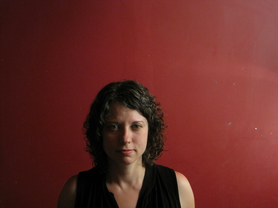 Emily Schultz Emily SchultzPhoto by Brian Joseph Davis Emily Schultz's first book, Black Coffee Night, was a finalist for the Danuta Gleed Award, while her second, Joyland, received rave reviews. Her most recent novel, Heaven is Small, was a finalist for the 2010 Trillium Award alongside Margaret Atwood, Alice Munro, Ian Brown, and Anne Michaels. Her writing has appeared in The Globe and Mail, Eye Weekly, The Walrus Magazine, and several anthologies. Schultz also edits an influential website called "Joyland," which publishes short fiction and commentary from across North America. For this work, she was named one of Canada's digital innovators by Quill & Quire magazine. Schultz lives in Toronto and New York. Kathryn Mockler: What is your first memory of writing creatively? Emily Schultz: When I was in second grade I penned two “books” with hand-drawn covers. I took them in to my schoolteacher and demanded that she read them aloud to the class. One was called The Adventures of Molly Mouse, the other Hemp the Horse. I’m not sure where I’d heard that word, but I thought it made a good name. I guess you could say I started off as a DIY author. KM: Why did you become a writer? ES: I really didn’t feel I had a choice. For example, see above. KM: What influences your writing the most? ES: It varies from book to book. With The Blondes, I guess the contemporary media-scape: the noise of news, disaster, and TV shows like She Survived That … Pregnant?! KM: Could you describe your writing process? (Do you write every day? When? Where? How do you approach revision.) ES: With this book, I wrote the first draft fast, consciously changing my process, which is normally slow and meticulous, weighing every line. My husband and I holed up in a desert cabin for several weeks without internet and that is where I did the bulk of the first draft, writing every day from 9 ‘til 4 while staring out the window at the mountains and desert scrub bush. Strangely, writing quickly I had less structural questions to attack in later drafts, and the characters—although they still needed work—were more consistent. There wasn’t time for self-doubt. KM: Rejection or criticism can often stop new writers before they start. Do you have any advice on how to deal with rejection? ES: Everyone gets rejected. As you become more successful you’re only going to face more or bigger rejections, so you have to get used to it and learn not to obsess. Have a cry, have a drink, watch something stupid on YouTube, and then fuhgeddaboudit. KM: What writers would you recommended to an aspiring writer? Or what writers were influential to you when you first started out? ES: I think you have to find your own writers. I remember when I was young people would tell me, “Oh you simply must read … It will change your life!” and I never seemed to relate to any of those books. I wondered what was wrong with me. And so, although I found writers I related to later, when I was first starting out I tended to write in reaction to work I didn’t care for. I knew more what I didn’t want to be than what I did—but knowing that part actually helped me immensely. KM: What is the best literary advice you've been given that you actually use? ES: Every story must have a beginning, middle, and end—from Aristotle, and my sixth grade teacher. KM: Your funniest or favourite moment that you've experienced as a writer or in the literary world. ES: It doesn’t get any more Canadian than this story. I was in Halifax at a Broken Social Scene concert when a young woman approached me in the crowd. She asked if I was Emily Schultz. She’d read my book and recognized me from a newspaper photo. This was about ten years ago, and it was the one and only time anyone ever recognized me at a non-literary event. I felt like a star. KM: Can you tell us about your new book The Blondes? ES: If this were a Hollywood pitch meeting, my one line would be: Blondes, with rabies. But this isn’t a Hollywood pitch meeting, so I’ll see if I can give a bit more of an impression. Plot-wise, it’s about a grad student who finds out she is pregnant from an on-and-off-again relationship with her married thesis advisor. She’s exploring all these feelings of being bewilderment, not knowing how she feels about him, about her own actions, or if she should keep or terminate the pregnancy, when an epidemic (a virus affecting only blonde women) forces her actions and her fate. I wanted to explore how women both threaten and relate to one another, and at the same time work again in the satirical form. I also wanted the book to be an action-adventure novel for women. KM: What are you working on now? ES: My next novel is still too early to talk about. But I’m doing some screenwriting with my husband Brian Joseph Davis. It’s a TV show about life at an alternative weekly. 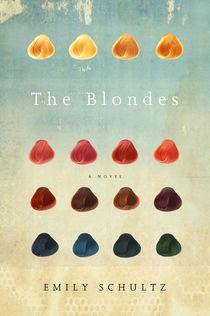 EMILY SCHULTZ'S MOST RECENT NOVEL The Blondes, Random House, 2012 Description from the publisher A breakout novel for a young writer whose last book was shortlisted for the Trillium Prize alongside Anne Michaels and Margaret Atwood, and whom the Toronto Star called a "force of nature." Hazel Hayes is a grad student living in New York City. As the novel opens, she learns she is pregnant (from an affair with her married professor) at an apocalyptically bad time: random but deadly attacks on passers-by, all by blonde women, are terrorizing New Yorkers. Soon it becomes clear that the attacks are symptoms of a strange illness that is transforming blondes--whether CEOs, flight attendants, skateboarders or accountants--into rabid killers. Hazel, vulnerable because of her pregnancy, decides to flee the city--but finds that the epidemic has spread and that the world outside New York is even stranger than she imagined. She sets out on a trip across a paralyzed America to find the one woman--perhaps blonde, perhaps not--who might be able to help her. Emily Schultz's beautifully realized novel is a mix of satire, thriller, and serious literary work. With echoes of Blindness and The Handmaid's Tale amplified by a biting satiric wit, The Blondes is at once an examination of the complex relationships between women, and a merciless but giddily enjoyable portrait of what happens in a world where beauty is--literally--deadly. Kathryn Mockler is the publisher of The Rusty Toque.
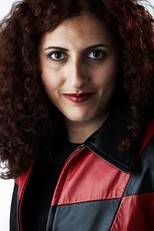 Priscila Uppal Photo by Daniel Ehrenworth Priscila Uppal is a Toronto poet, fiction writer, and York University professor. Among her publications are seven collections of poetry, most recently Ontological Necessities (2006; shortlisted for the $50,000 Griffin Poetry Prize), Traumatology (2010), and Successful Tragedies: Poems 1998-2010 (Bloodaxe Books, U.K.); and the critically acclaimed novels The Divine Economy of Salvation (2002) and To Whom It May Concern (2009). Her work has been published inter-nationally and translated into numerous languages. RUSTY TALK WITH PRISCILA UPPAL Kathryn Mockler: What is your first memory of writing creatively? Priscila Uppal: I remember writing stories about my neighbours. My goal every day was to get myself invited to other people's houses for dinner. I loved watching other people eat and interact with each other. I loved looking through playbins, drawers, medicine cabinets. I was fascinated by people's parents, what they deemed acceptable behaviour or not, what they made for dinner, what gods they worshipped. I honestly think I became a writer because I was pretty nosy about my neighbours. KM: Why did you become a poet? PU: Because I didn't know it was something I could be. I read lots of poems and felt at home inside the language of poetry—metaphor, ambiguity, utterance. Then I started writing them. I wrote poems as a teenager almost every single day, and I haven't really stopped. I went to university because I soon learned that I could actually get scholarship money to read and write poetry and other books all day. That seemed too good to be true—criminal even. So, I took advantage of it. And I suppose I still am. KM: Could you describe your writing process? (Do you write every day? When? Where? How do you approach revision, etc.) PU: I probably do engage in writing every day but the type varies. I write poetry, fiction, creative non-fiction, plays, essays, articles, lectures, even interviews. I tend to write in one form while I am editing another. This kind of cross-pollination, I think, keeps my brain firing in interesting ways. I always work on more than one project at once. That way if I'm stuck or bored, I will switch to another project until I figure a few things out and can return with renewed energy. KM: Rejection or criticism can often stop poets before they start. Do you have any advice on how to deal with rejection? PU: I listen to criticism if it comes from a trusted or intelligent source. I then try to figure out if I think it's fair or valid or something to ponder while I write other work. But I don't listen to rejection. If a magazine or publisher doesn't want my work, that's fine, then it's not the right place for the work. Sometimes the hardest part of publishing is figuring out where a piece will find a home. If you consider that phrase "finding a home," it's apt because if you're someone who knows what it's like to be on your own (I left home at 15, and so know this quite well), then it doesn't seem strange that you might not find the perfect place right away. KM: What poets or writers would you recommended to an aspiring poets? Or what writers were influential to you when you first started out? PU: I think it's hard to sort through all the stuff out there. Every aspiring poet probably already has some favourite poets, so I might suggest finding out who those poets read and liked and who they were reacting against to get a sense of how a poet works within the world of poetry. I think it's important to read widely and internationally and that if you don't have people in your circle who can recommend writers that might be of particular interest to you in terms of what you might already be writing and reading, then taking a class can help draft a new reading list and bibliography. I discovered lots of writers through taking courses and those teachers recommending more writers to me. KM: What is the best thing about being a writer and what is the worst thing? PU: The best thing about being a writer is that I can work almost anywhere. My favourite place to work is beachside in Barbados. I write for hours in the morning, then run on the beach, then make notes and read all afternoon and swim. I can't think of a better life than that. The worst thing about being a writer is that everyone asks you what you really do for a living. I was hired by the university as a poet. I teach poetry and other arts. I tell people that I might not make all my money through book royalties, but I do indeed make my living as a writer KM: Your funniest literary moment, if you have one. PU: One of the funniest was in Sri Lanka at the Galle Literary Festival (a wonderful and warm festival by the way, in a beautiful old Dutch fort town). The opening reception was on this glorious property on a hill and sponsored, in part, by the government of Sri Lanka. As we walked in, young Sri Lankan boys played bagpipes, dressed in Scottish outfits. An orchestra of other young people in elaborate school uniforms played on the grass. Champagne flutes of lime juice were passed around and plates of warm nibbles. At the end of the reception, as we were to talk to the next venue for the evening, further down the hill, a flurry of fireworks exploded. They were so unexpected and near to us that many of us screamed, held our hearts, and tried to steady ourselves as we laughed in both amusement and fear. The fireworks kept coming. Louder. Closer. Bits of fire fell directly in front and behind us the entire time. In order to contain our fear, many of us laughed, and kept laughing. When it was finally over, we writers all looked at each other in relief, trying to figure out if this was the usual welcome for writers for the festival. KM: What are you working on now? PU: I'm just about to leave for London to resume my position as Canadian Athletes Now Poet-in-Residence during the 2012 Olympics and Paralmpics. I'll be writing and publishing two poems per day, one on the Canadian Athletes Now website and one on the Literary Review of Canada website (under Poet's Corner). I will also be posting an article every two days on the LRC website about sports art. This is a project I am very passionate about—encouraging sport and artistic practice, breaking down stereotypes between the sports and arts worlds, and bringing poetry to new audiences in a fun and exciting way. I will be working on the companion to Winter Sport: Poems, called fittingly Summer Sport: Poems, to be published in early 2013. Follow Priscila Uppal |
Rusty Talk
Rusty Talk Editor: Archives
November 2017
Categories
All
|

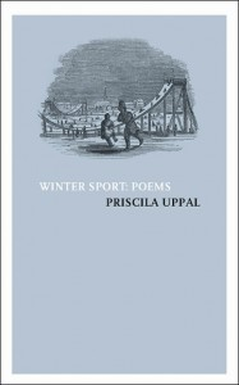
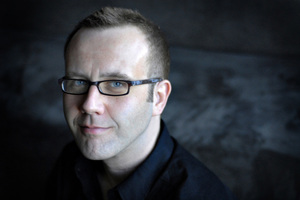
 RSS Feed
RSS Feed
